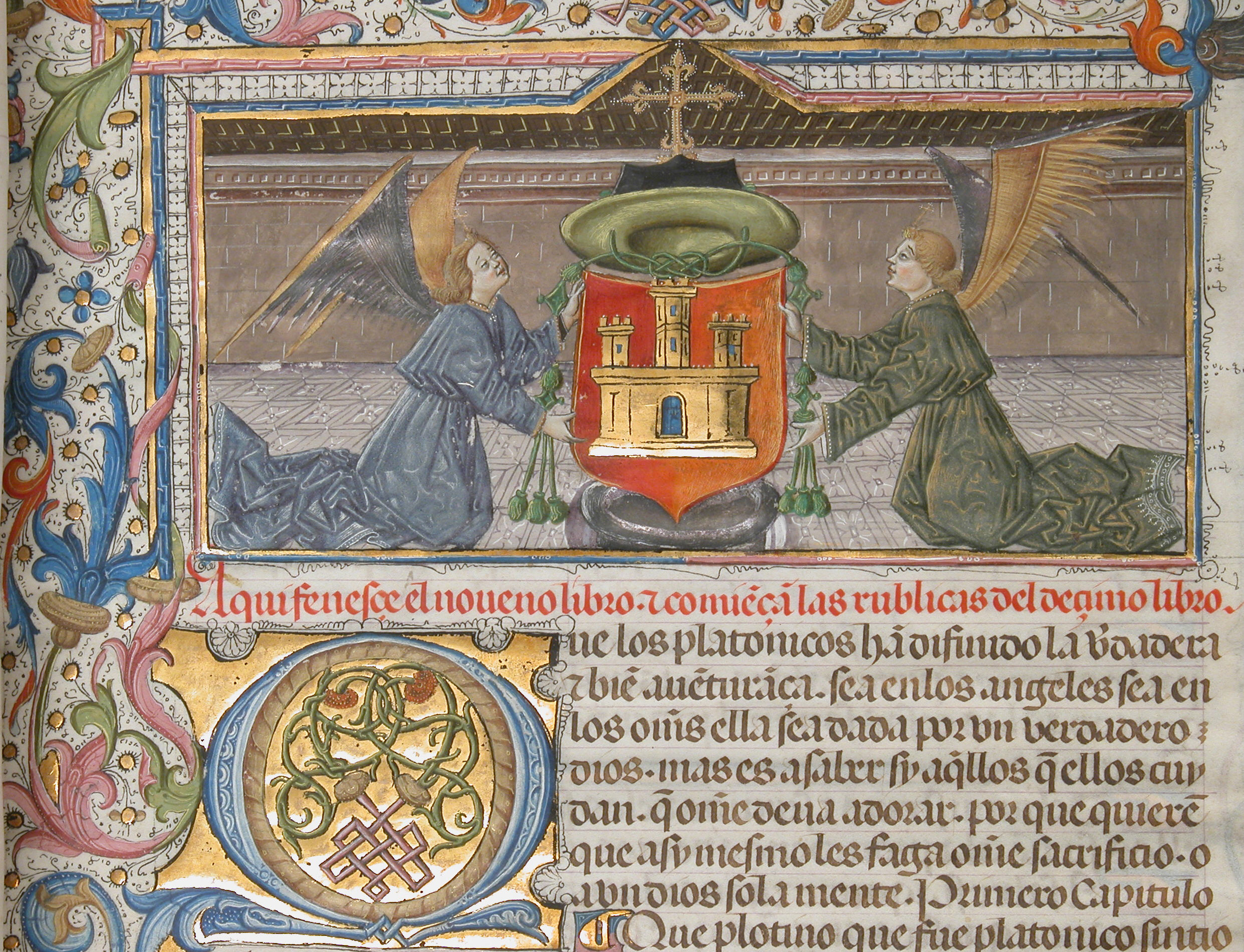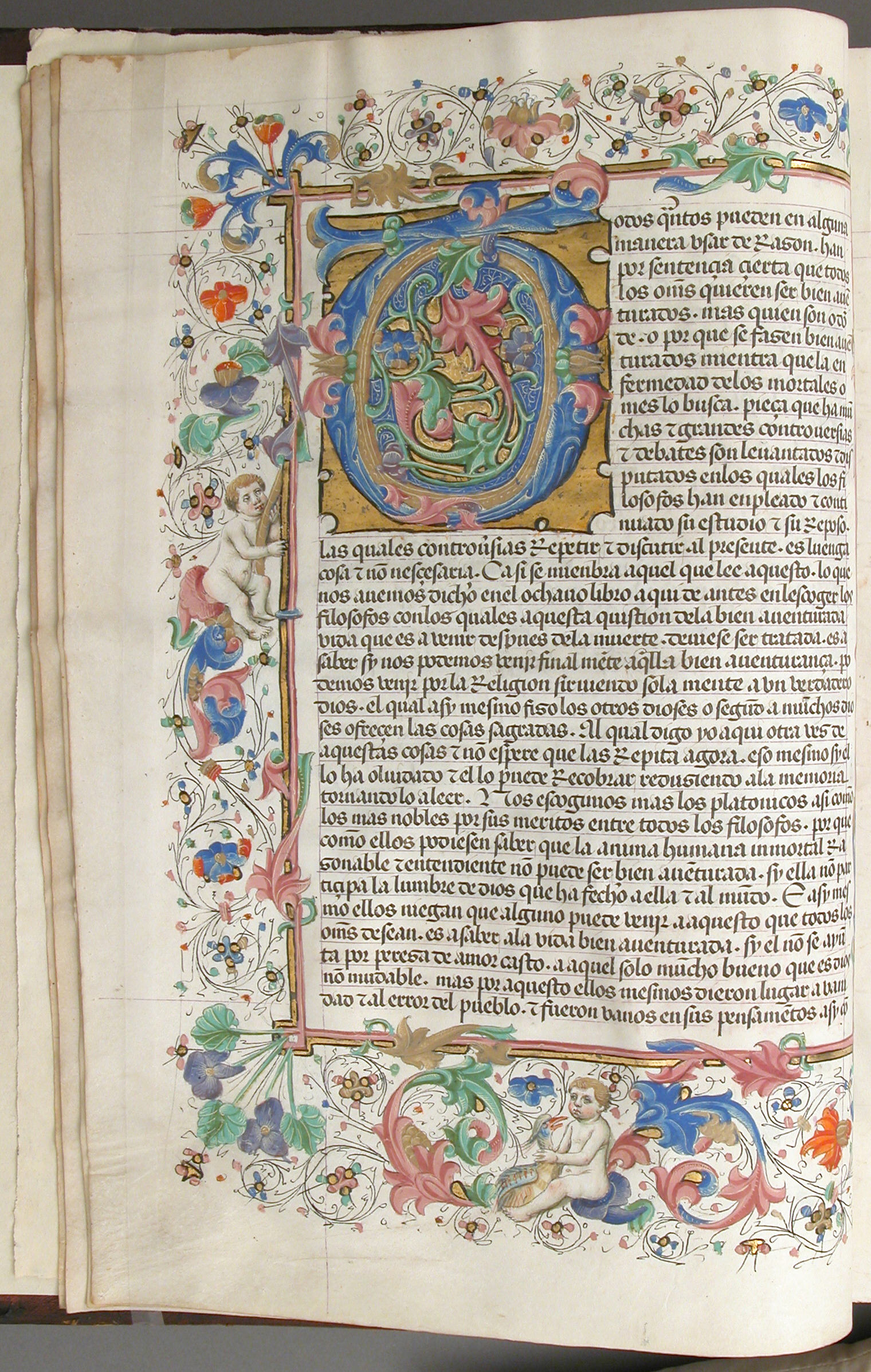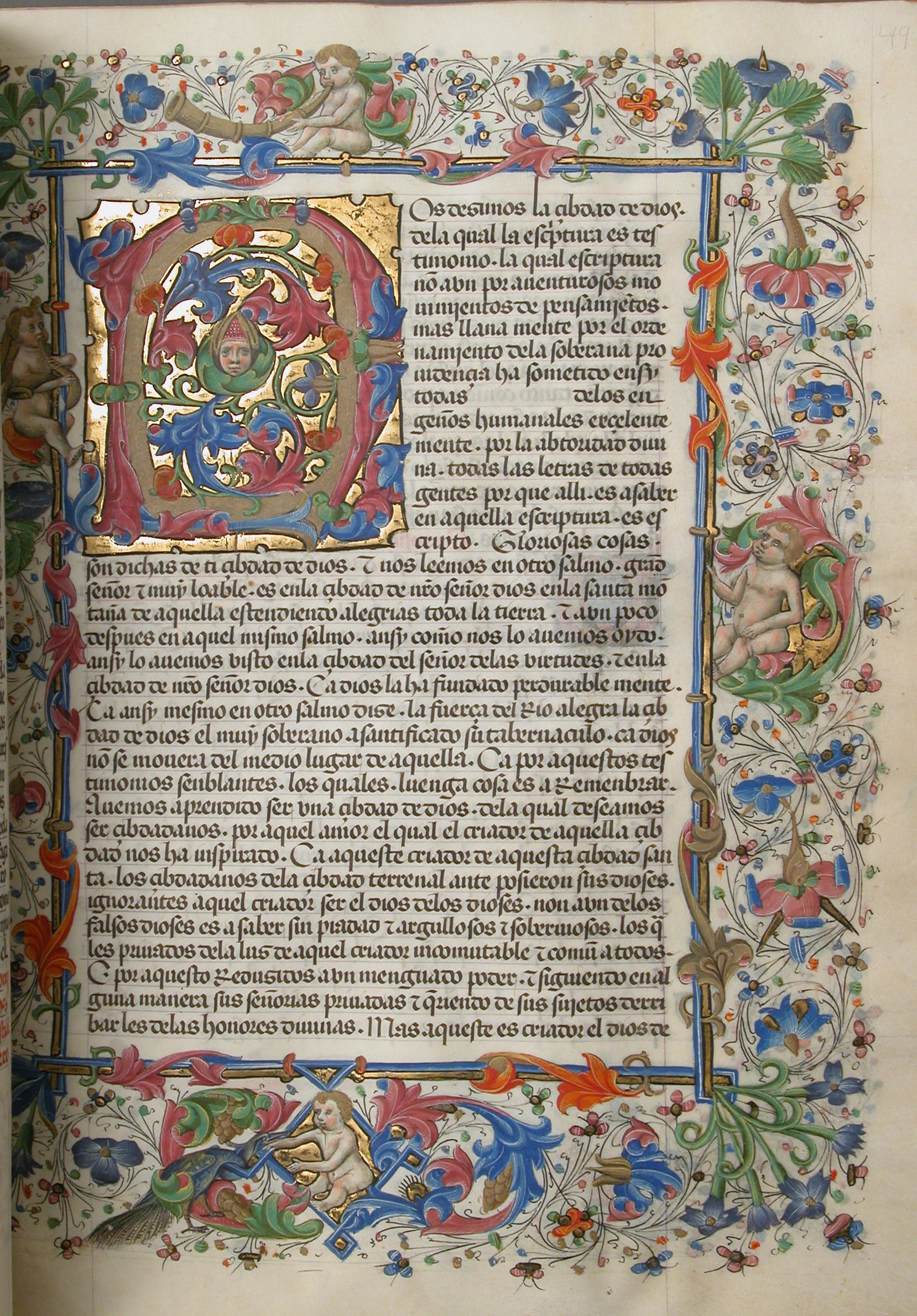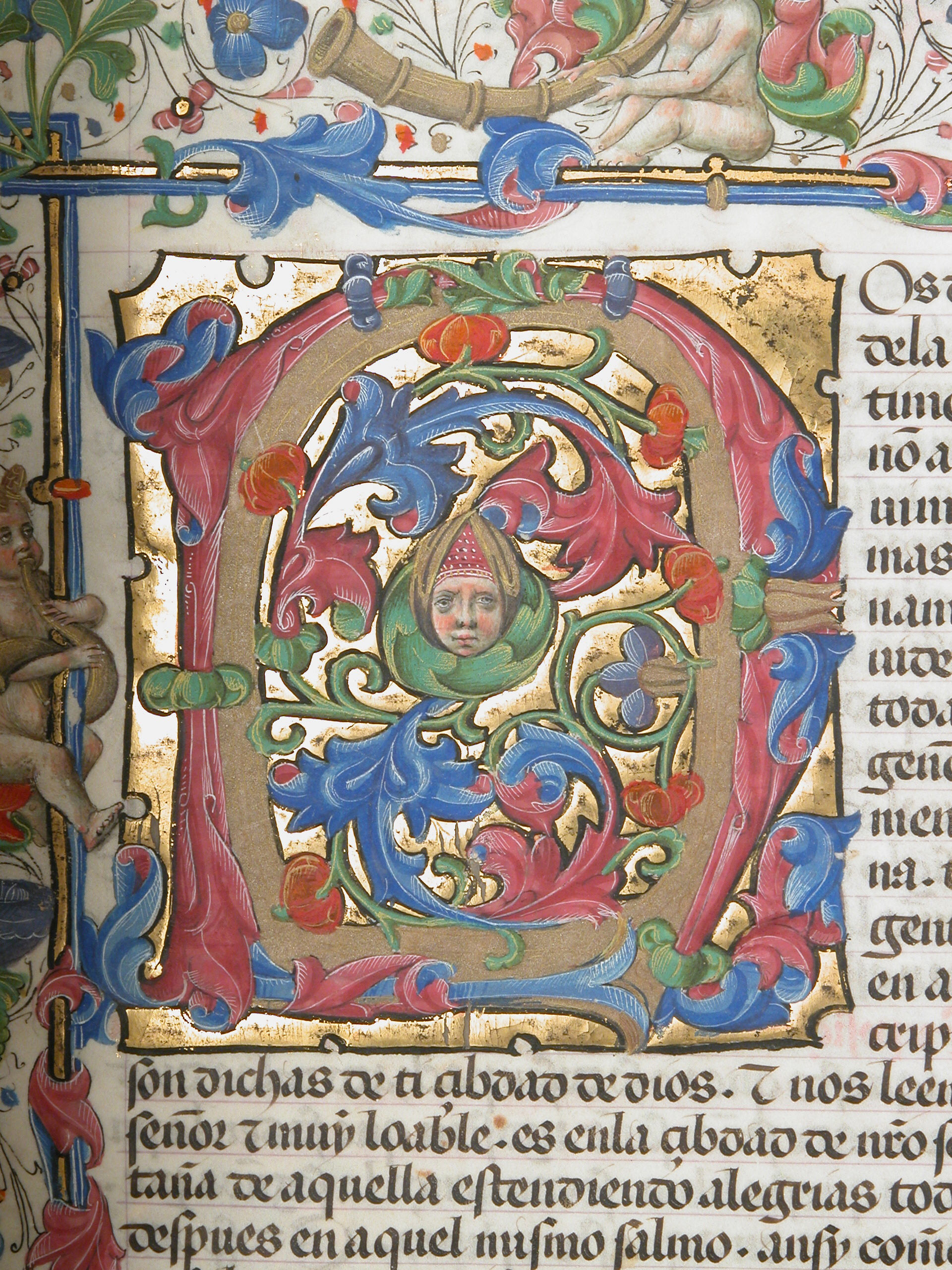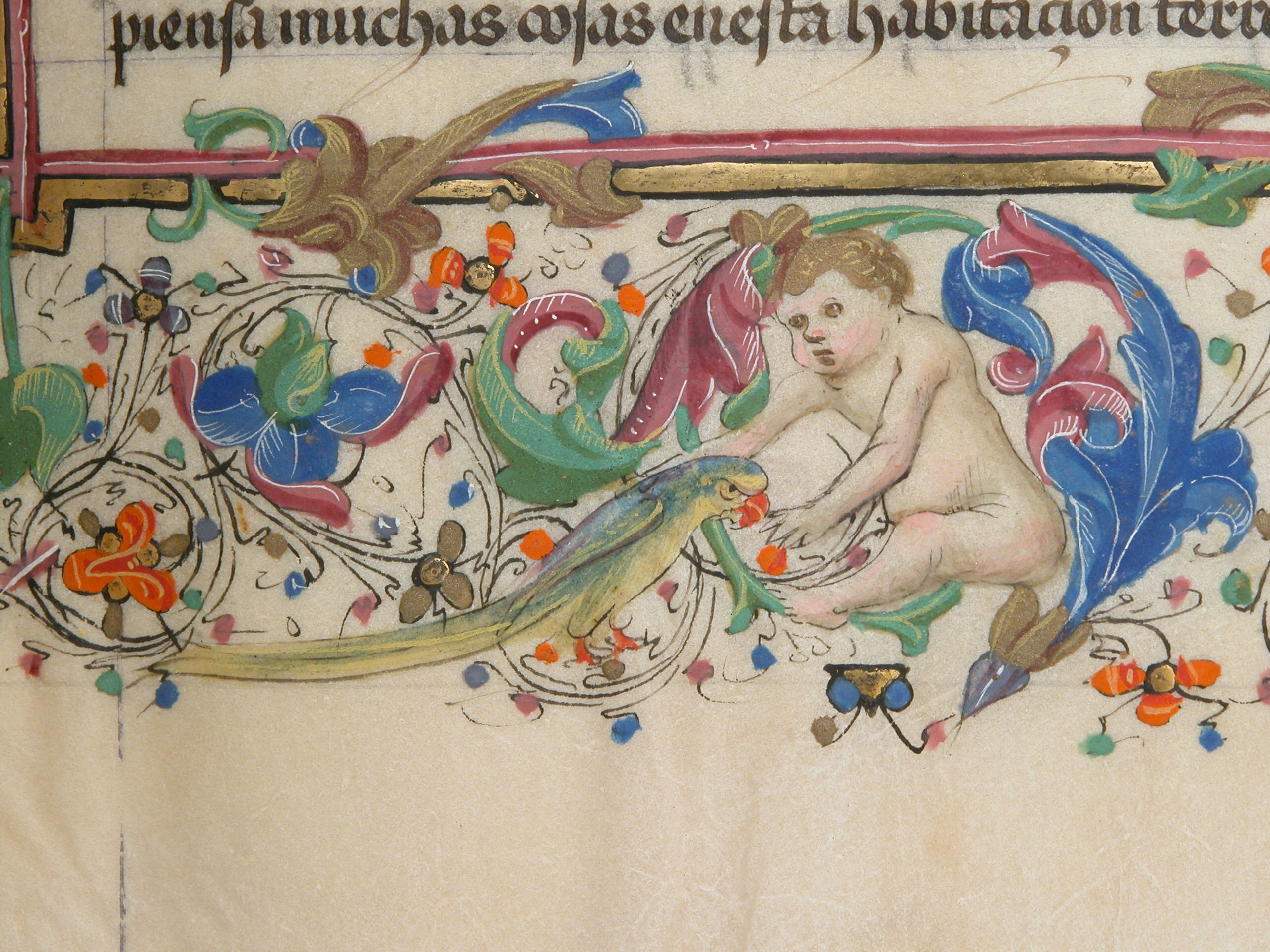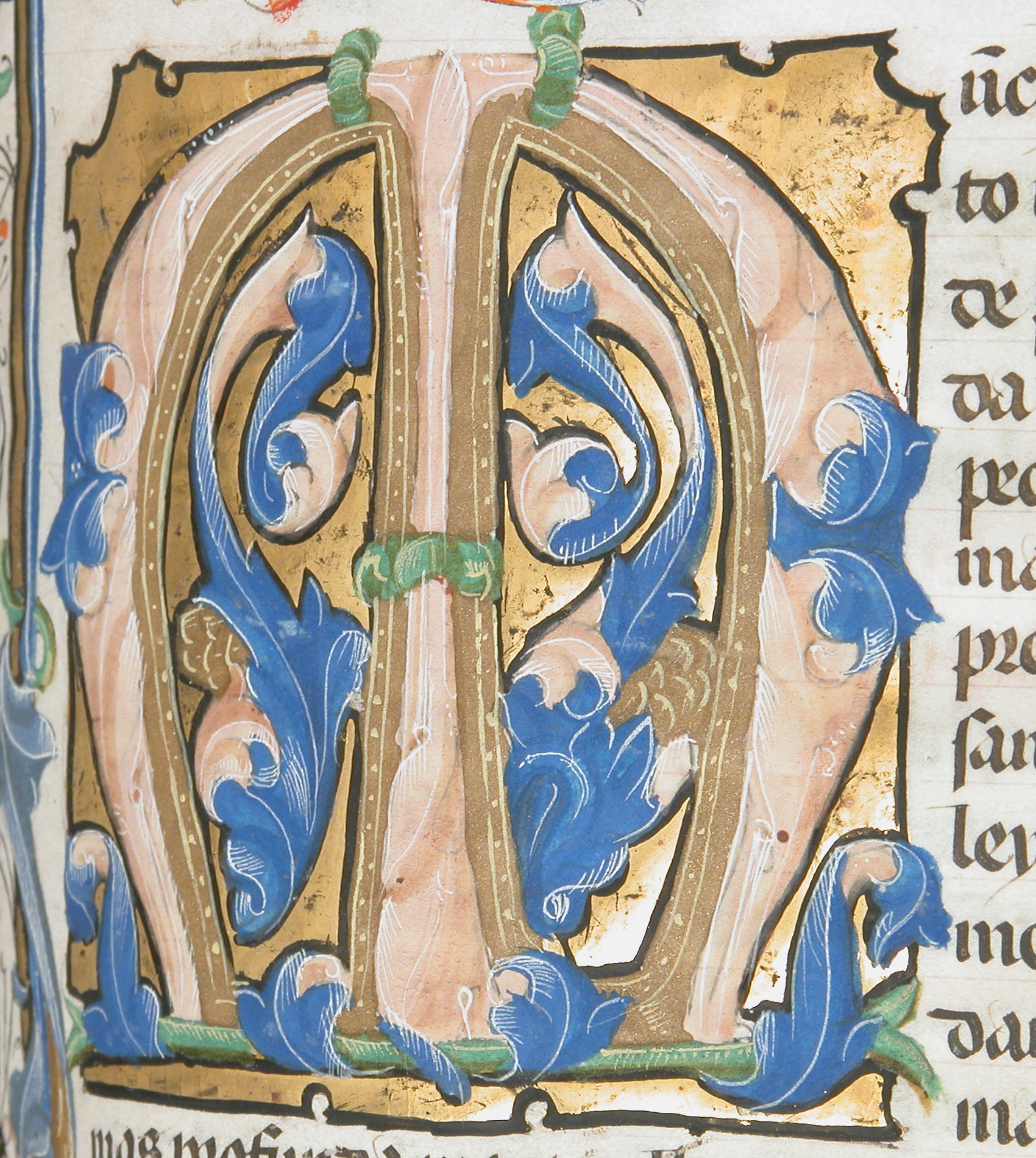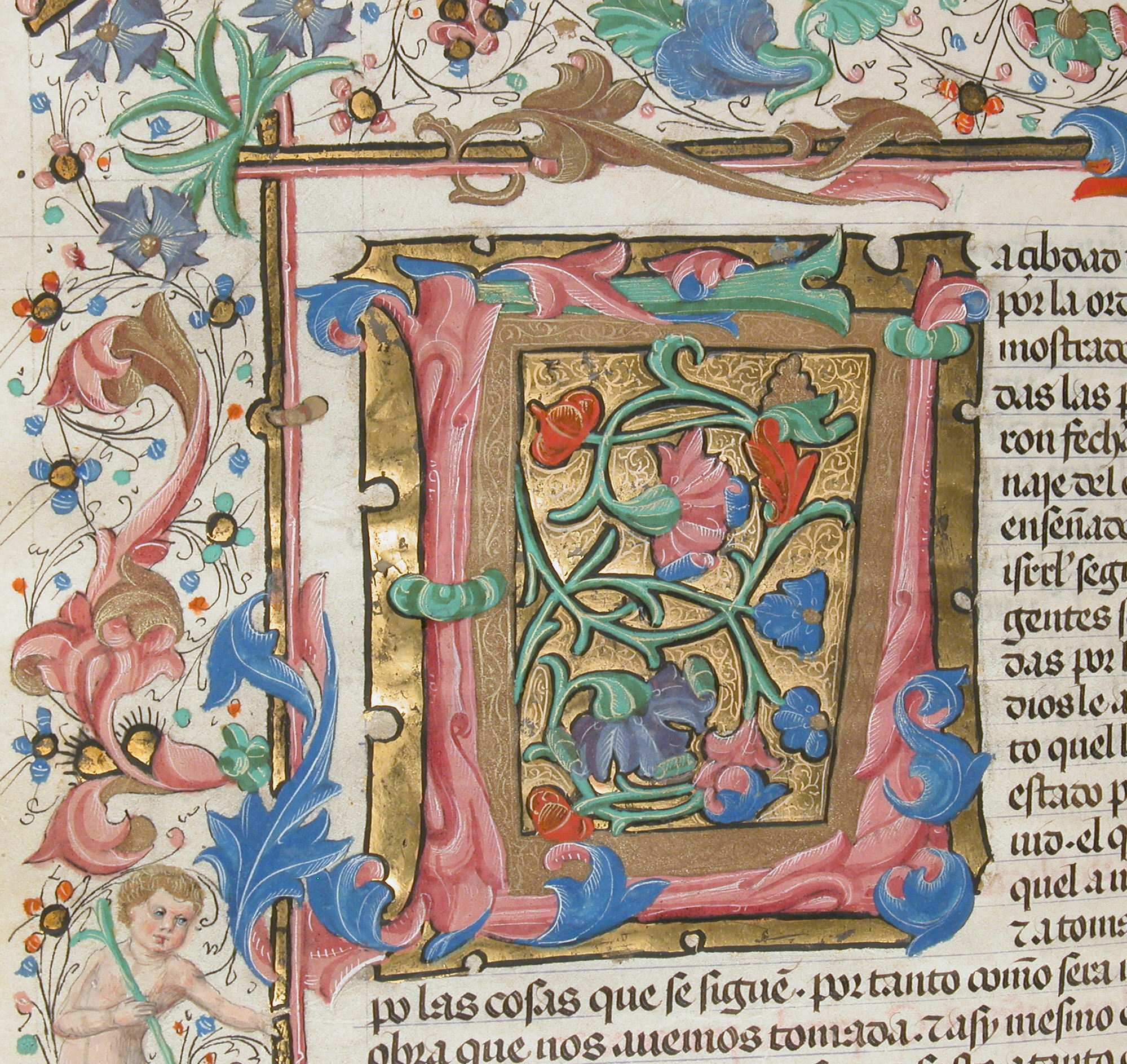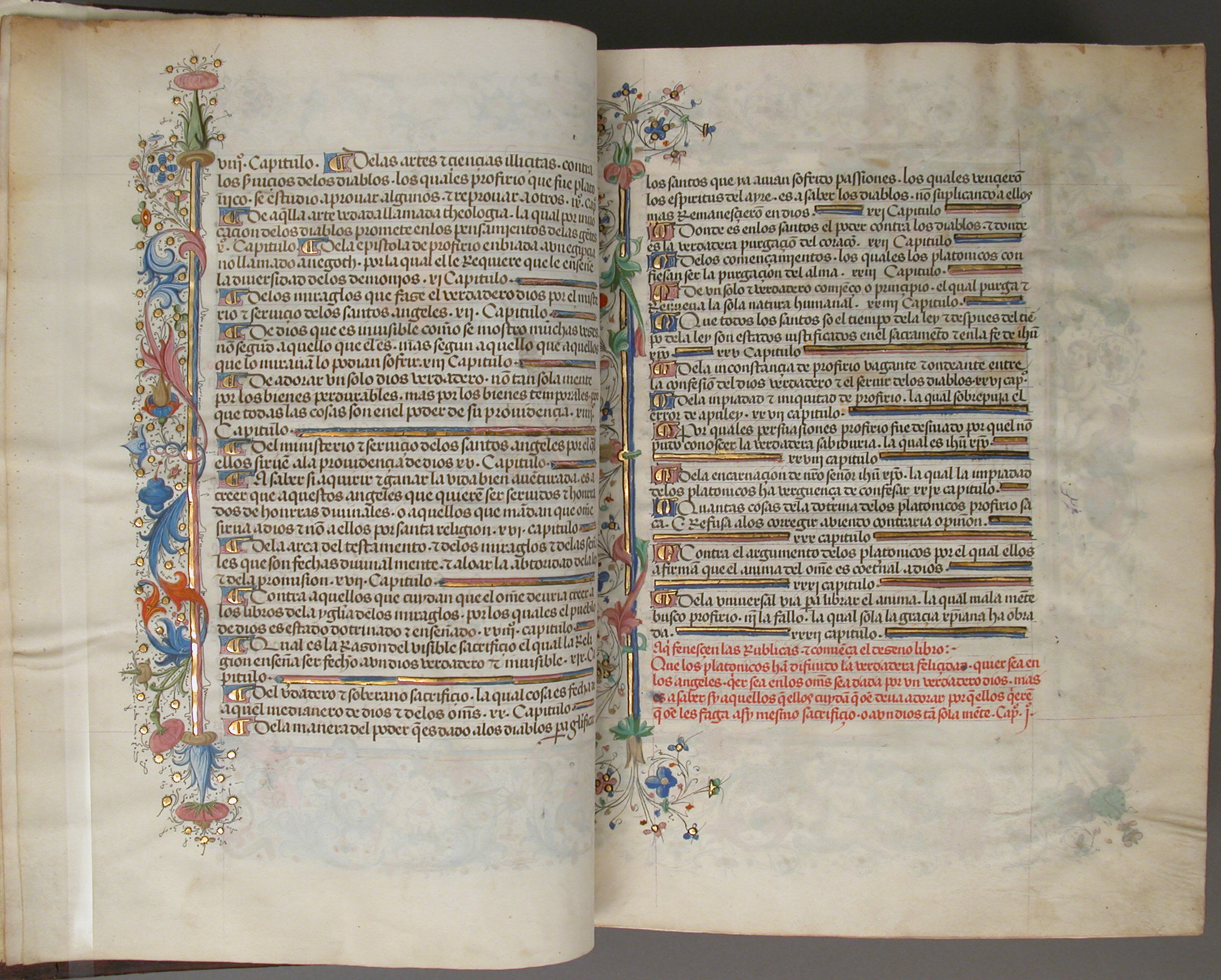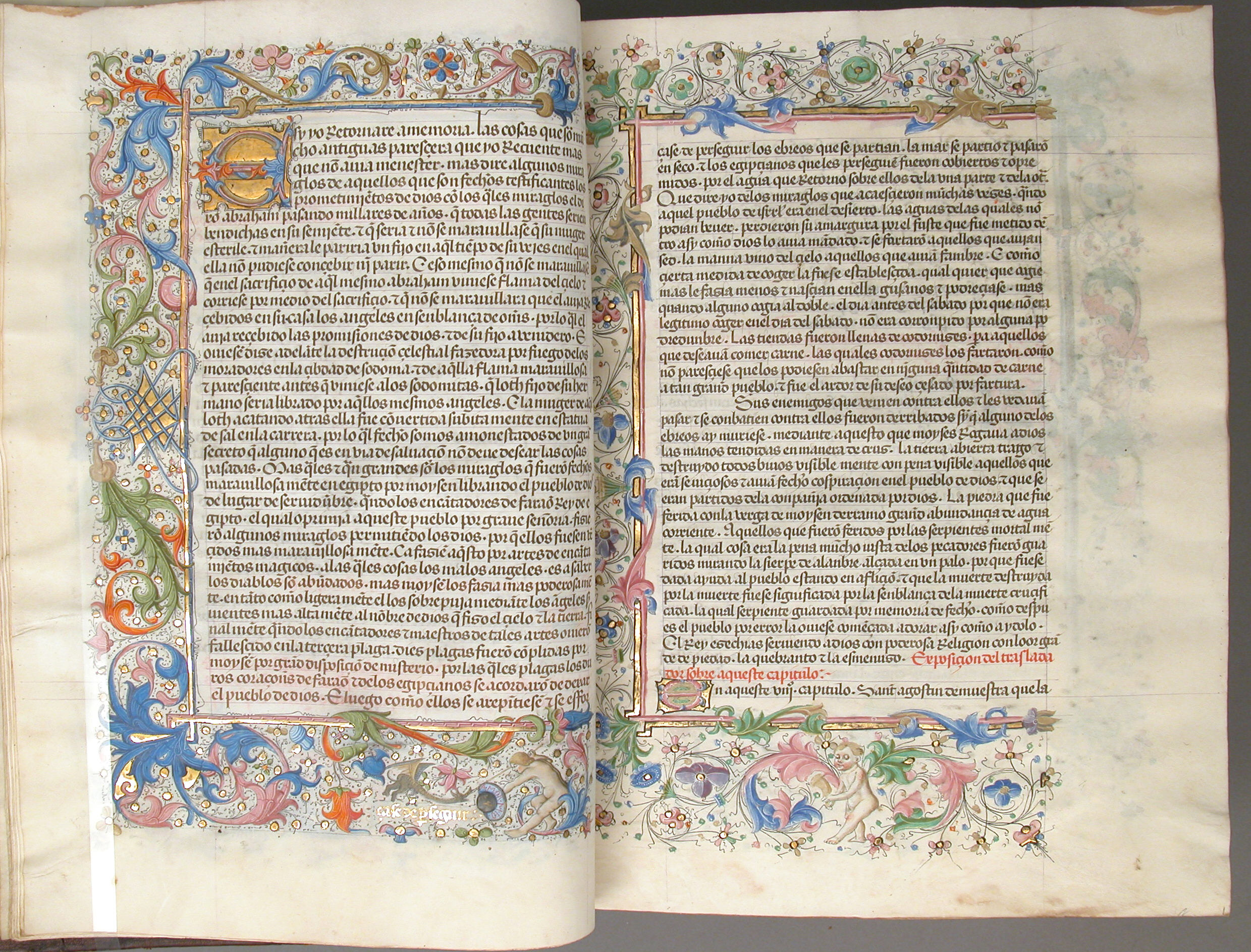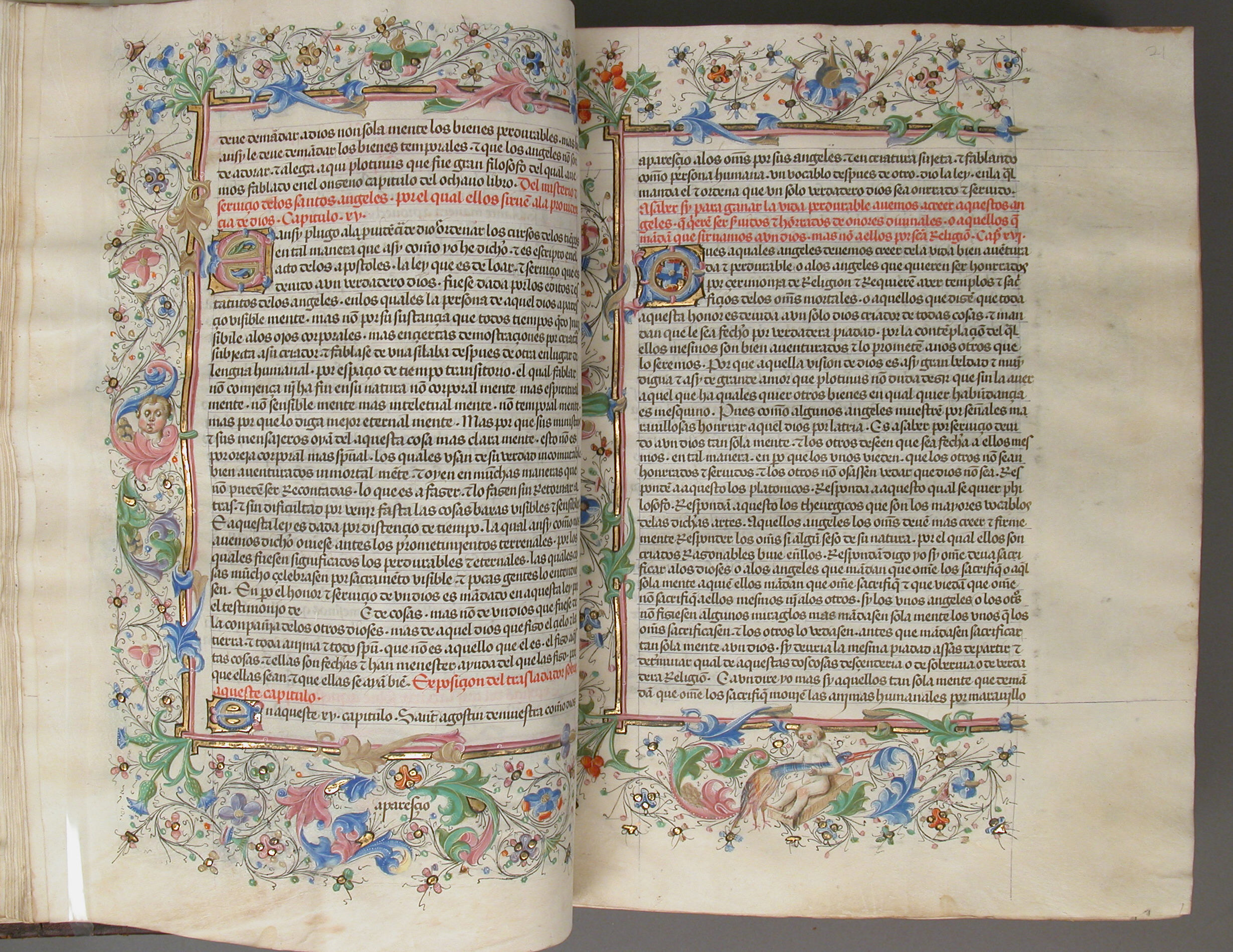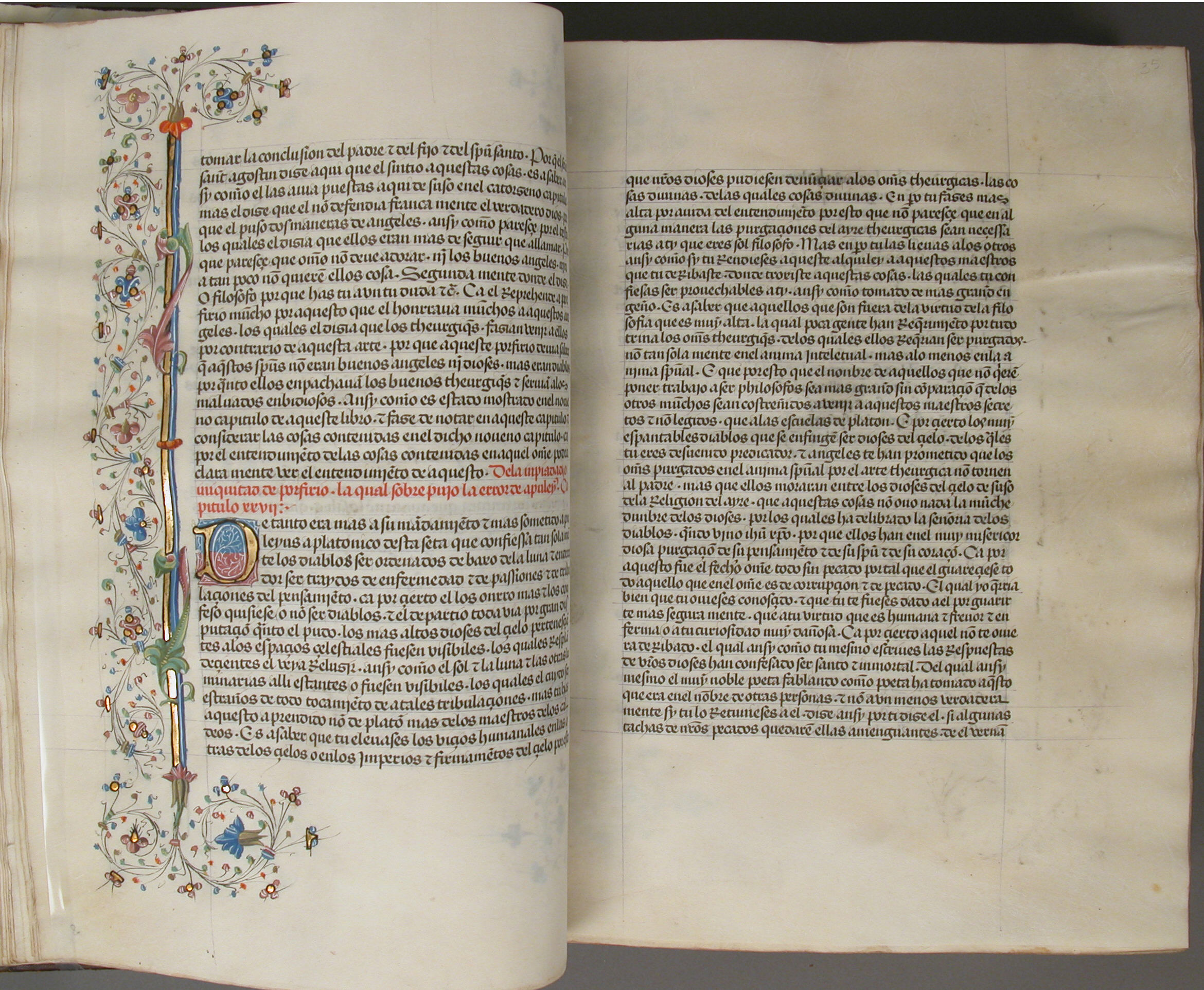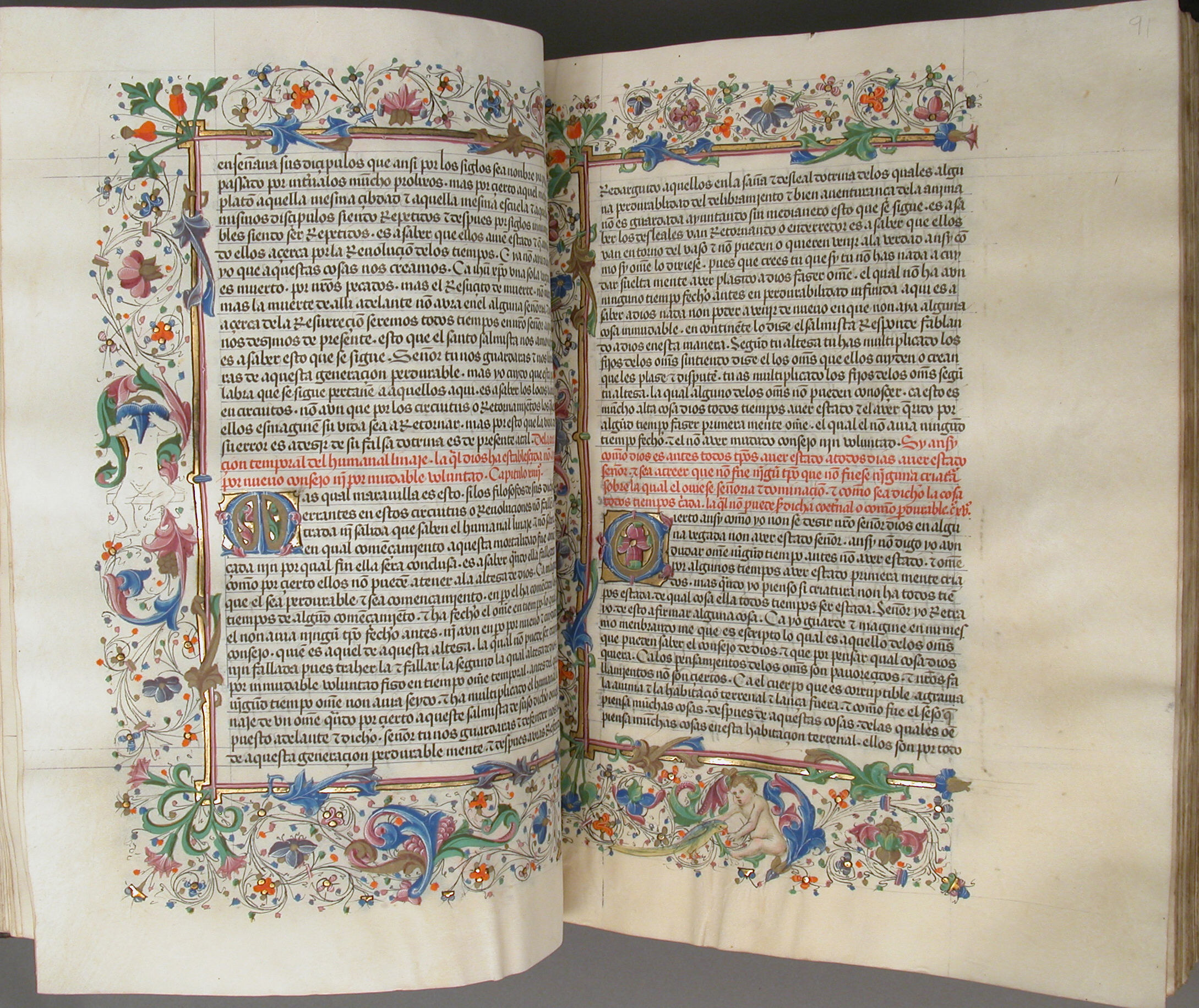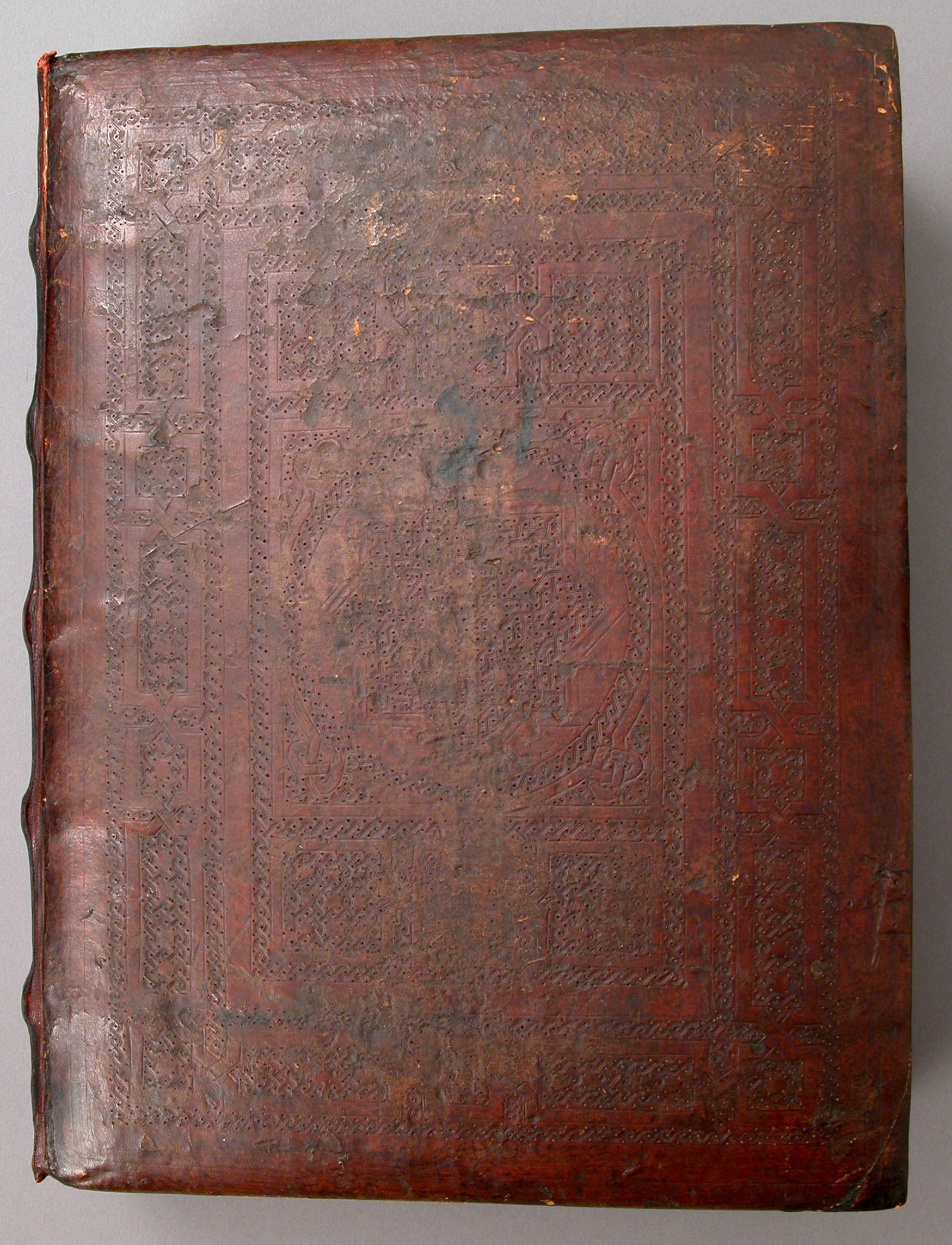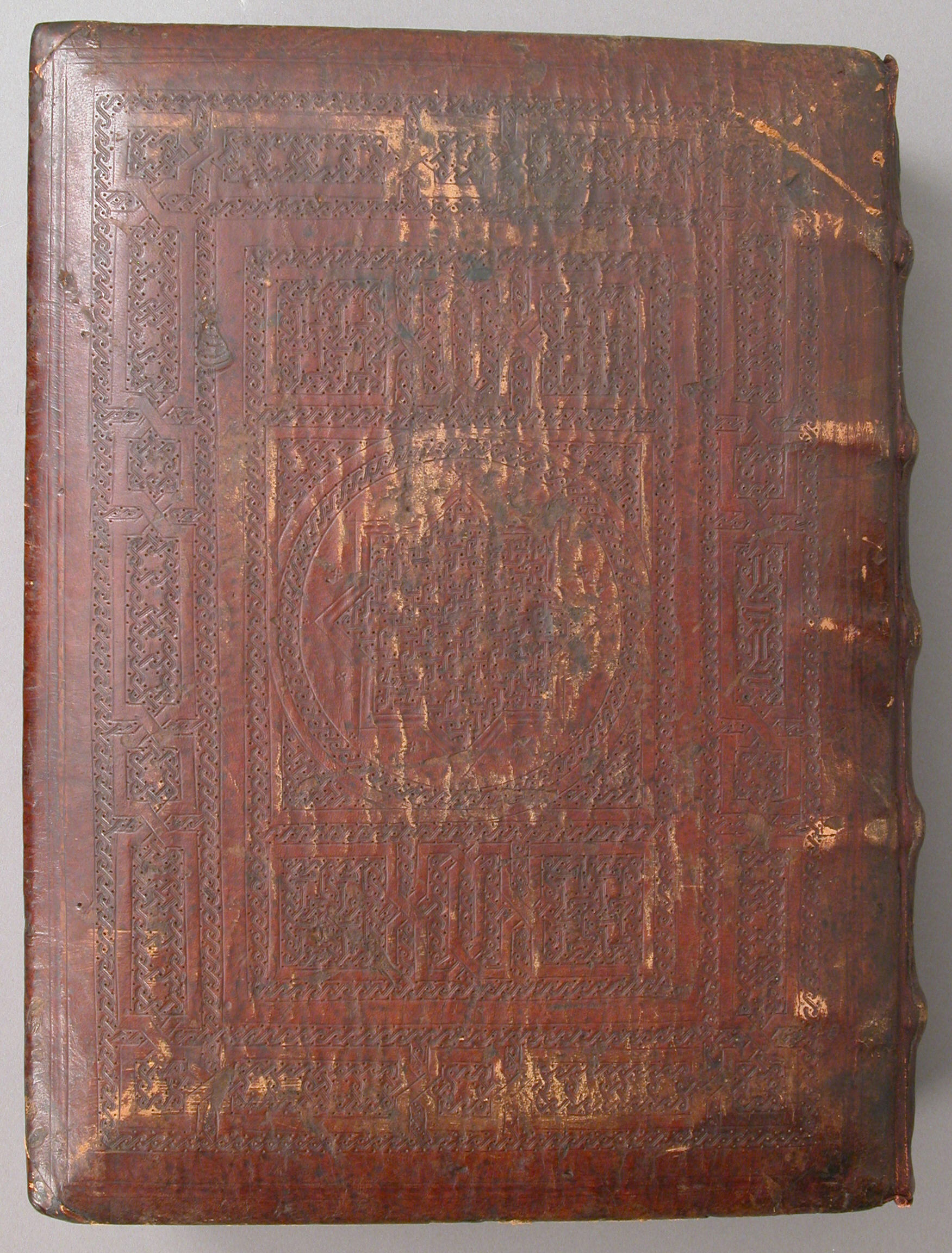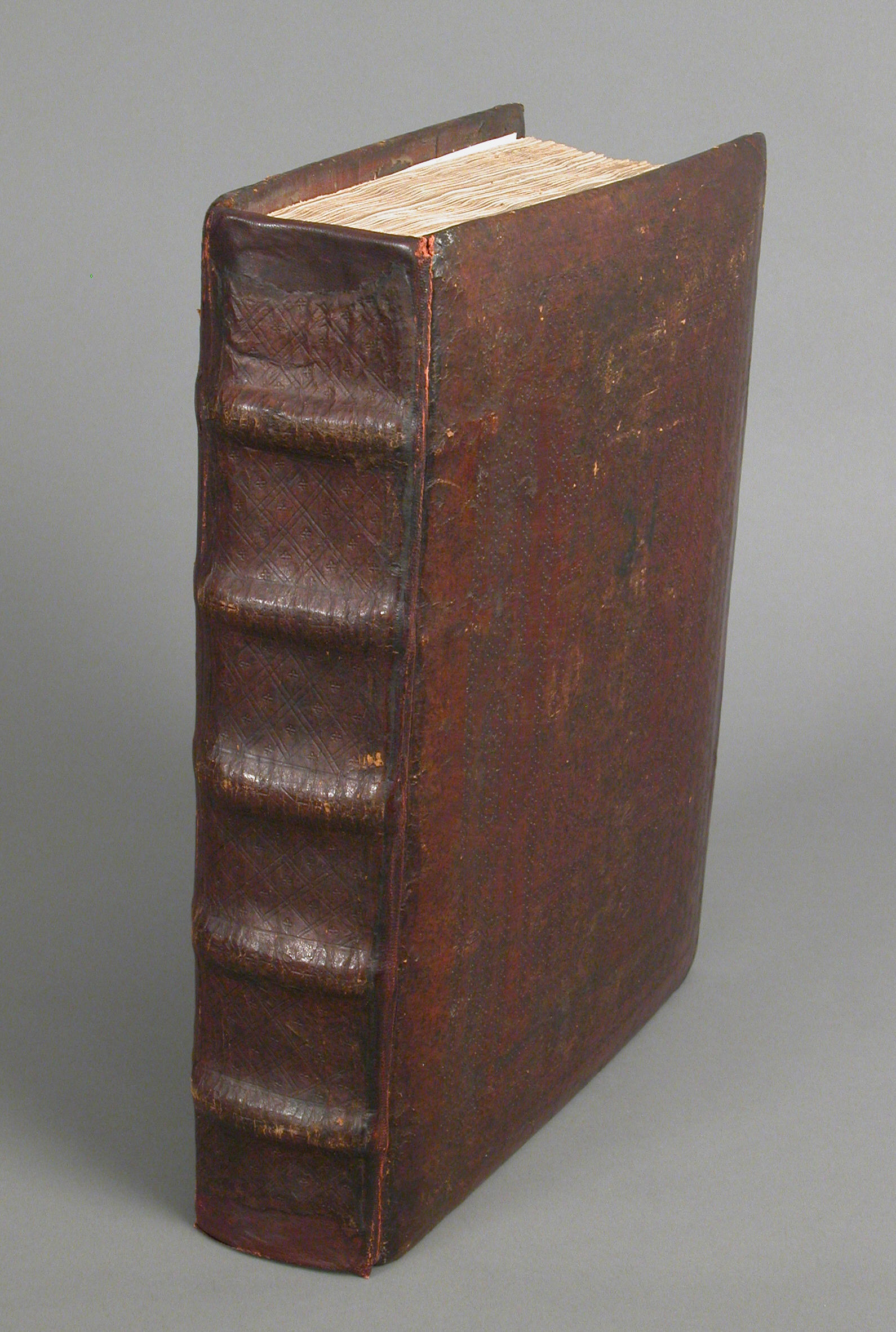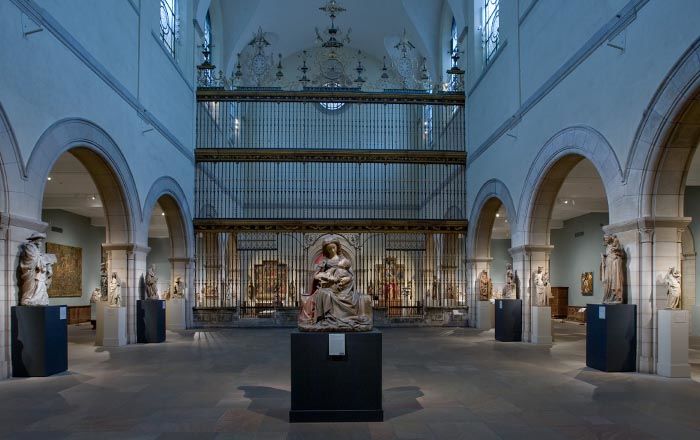Spanish Translation of Saint Augustine's "City of God"
Cano de Aranda Spanish
This volume is one of three containing the complete Spanish translation from the Latin of Saint Augustine’s City of God (De Civitate Dei), written in the early fifth century, after the sack of Rome by the Visigoths. Augustine, bishop of Hippo in North Africa, developed the concept of the Church as a spiritual heavenly City of God in contrast to the material earthly City of Man. Even in times of upheaval, man should fix his eyes on the heavenly Jerusalem rather than on earthly political matters, for in the end, empires would fall, and God alone would triumph. While the thesis is framed by this conflict of the material and the spiritual, Augustine digressed throughout the twenty-two chapters into discussions of the flaws of pagan religions, the turpitude of the Romans, original sin, the natures of the Cities of God and Man, and many other themes. In this Spanish manuscript copy of the City of God, the text of each chapter or book begins with a major decorated initial, is enriched with abundant marginalia throughout, and ends with a brief exposition or interpretation of the preceding text
Due to rights restrictions, this image cannot be enlarged, viewed at full screen, or downloaded.
This artwork is meant to be viewed from right to left. Scroll left to view more.


